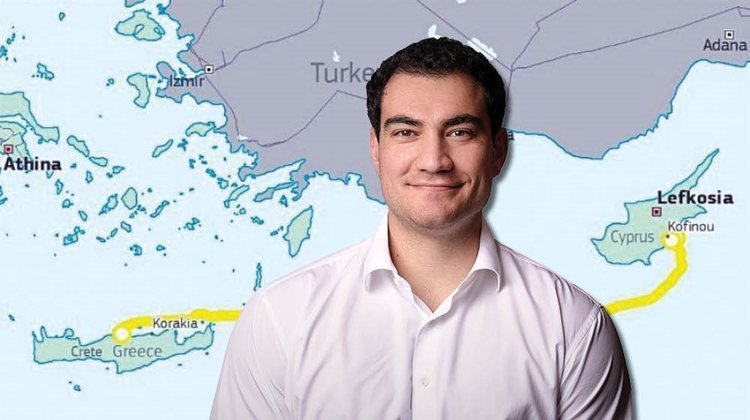G. Chrysochos on GSI deal: We’re about to hand over €125m without knowing the final cost
Marios Adamou 09:56 - 05 September 2024

The president of the Electricity Market Association, George Chrysochos, has blasted the government’s decision to sidestep the energy regulator and enter an initial agreement for the electrical interconnection between Cyprus and Greece – the Great Sea Interconnector – that will see the country cough up €125m up until 2030, dubbing it “scandalous” and “unacceptable”.
He also sent a stark warning that the state needs to stay out of the energy regulator’s decisions.
Speaking to InBusinessNews and asked to comment on the latest developments surrounding the project, Chrysochos said: “It’s scandalous what is happening; with the decision that was made, the state is pushing aside, essentially marginalising, the Cyprus Energy Regulatory Authority (CERA), which is independent and the authority responsible for the project.”
He added, “In its own decision, CERA said it did not want the Cypriot consumer to be burdened, to pay, prior to the electrical interconnection’s operation; and now the state is coming and sidestepping CERA and has undertaken to pay the €125 million itself. But where will it get this money from? From the emissions fund, which is footed by the consumer?”
So essentially, he said, the burden will fall on the shoulders of Cypriot consumers, “one way or another”.
And Chrysochos wondered: “How can you go and give government funding to a project, without taking shares or even collateral? What does ‘cost recovery’ even mean? And why are we granting the IPTO (Greece’s Independent Power Transmission Operator) this right?”
The state, he added, is about to pay €125m towards the project without knowing its final cost. “What happens if in the future, construction costs, for whatever reason, increase to €3b or €4b, and the IPTO comes and says it does not have the capital to complete the project? What will we do then? Will we abandon the project halfway? End it?”
For Chrysochos, it is clear that the government must not take on such a responsibility without first clarifying what the final cost of the project will be.
“Right now, Nexans has not provided the final cost of the project and this is because it hasn’t conducted the depth sounding. How are we supposed to hand over €125m? What’s about to happen is unacceptable and scandalous,” he said.
Nexans is the company awarded the turnkey contract for the section of the Great Sea Interconnector that connects Greece and Cyprus.
The government, he added, should not be intervening in CERA’s work. “It must allow CERA to make its decisions without influence, as the competent and independent Authority,” said Chrysochos, adding that CERA had its reasons to decide what it did.
“CERA’s decisions were based on the fact that, first, the final cost has not yet been clarified and second, it is not clear when the project will be completed,” said Chrysochos, repeating how he found the whole affair utterly scandalous.
The initial agreement
Based on the initial agreement, the Republic of Cyprus will pay €25m a year towards the project from 2025 until its estimated completion in 2030. The funds, €125m in total, will be paid to the IPTO to cover expenses.
This money will come from the country’s Emissions Fund, which derives revenue from the trading of emission rights.
But for this to be possible, a relevant decision will have to be made by the Council of Ministers, while it may also need to be legally regulated.

